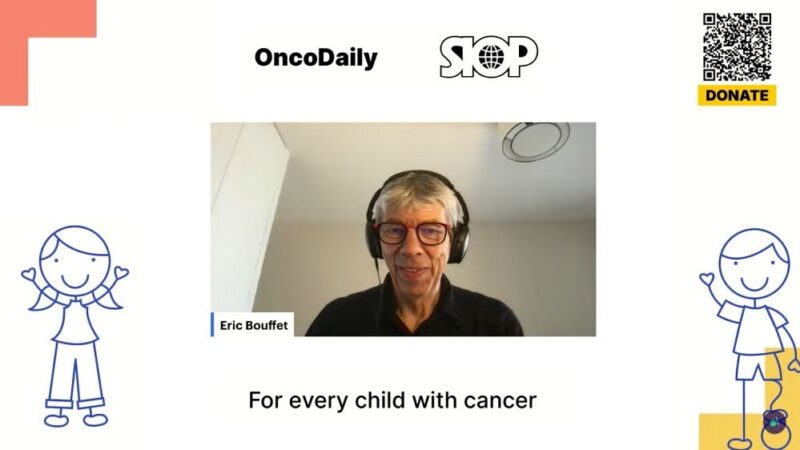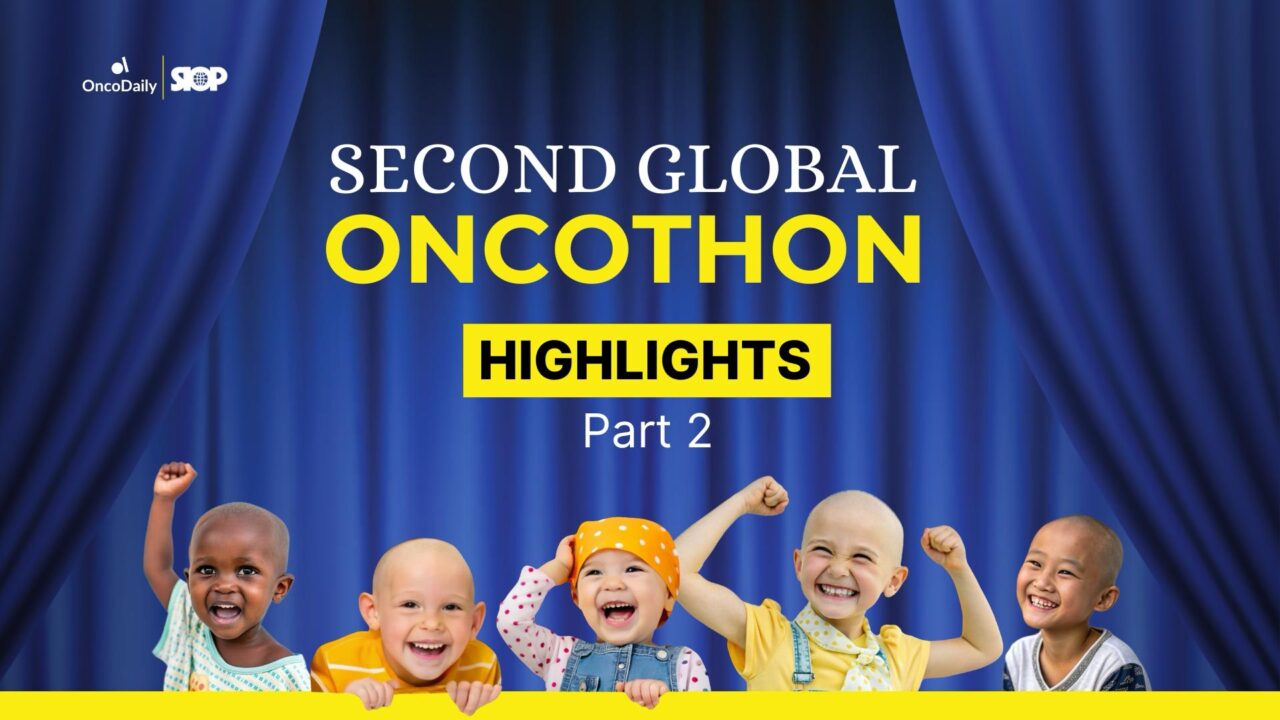OncoDaily and the International Society of Pediatric Oncology (SIOP) hosted the Second Global OncoThon, a 24-hour virtual event on February 15, 2025, raising funds and awareness for pediatric cancer research. Despite being a leading cause of childhood deaths, pediatric cancer received far less funding than adult cancers, limiting treatment options.
With nearly half a million new cases each year, children face a critical gap in life-saving therapies. The OncoThon brought people together to share real stories, take action, and push for change.
No child should fight cancer alone – now is the time to make a difference.
Inspiring speakers had shared stories and their insights. Here are some highlights from their talks as we continue this global movement to ensure no child fights cancer alone:
Dilyara Kaidarova, Chairman of the Board at the Kazakh Institute of Oncology and Radiology, talked about the challenges and progress in childhood cancer treatment in Kazakhstan, highlighting the need for improved early diagnosis and accessibility for rural patients. She emphasized that while oncological care for children was free, the country faced difficulties due to its vast territory and small population. She also shared insights from a World Health Organization-led study on delayed diagnoses and urged global collaboration to improve outcomes.
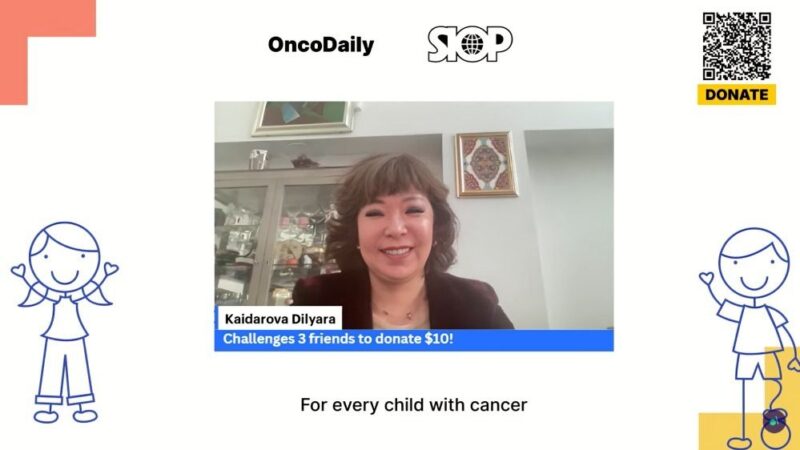
Khaled Ghanem, Medical Director of the BASMA Pediatrics Oncology Unit in Damascus, spoke about the significant challenges faced by childhood cancer care in areas of conflict and crisis, particularly in the Middle East. He highlighted how local NGOs, like PESMA in Syria, had made a transformative impact, improving survival rates to 76% and even up to 84% for certain cancers, showing the critical role of community support and collaboration with international organizations in enhancing cancer care in low-income countries.
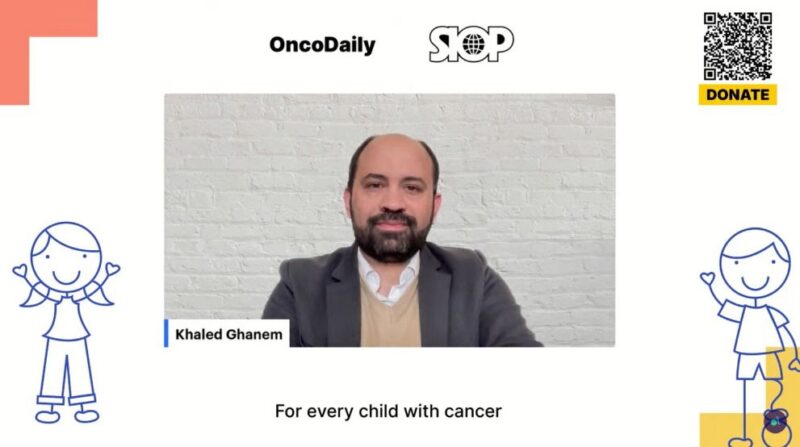
Professor Loizos G. Loizou, Clinical Professor of Pediatrics, Pediatric Oncology/Hematology/Immunology at the Medical School of the University of Nicosia, joined the OncoThon Challenge for pediatric cancer research, emphasizing that together, we could help every child, no matter where they lived. He pointed out that every five minutes, a child was diagnosed with childhood cancer, and the situation was worsening, with 14 million children diagnosed globally. He stressed that more needed to be done, regardless of whether a country was large or small.
Loizou also highlighted the importance of Cyprus’s health programs, noting that even though Cyprus was a small country, it played a significant role in helping others. Cyprus’s government supported the supply of medications and had programs dedicated to raising awareness. Despite being a small country, Cyprus had a strong commitment to making a positive global impact by helping raise funds and supporting research initiatives.
In his message, Loizou also quoted Hippocrates, the father of medicine: “The art of healing is not only a science, it is also a love for children and humanity.” This reflected the idea that medicine was more than just technical expertise; it was about compassion and a deep commitment to improving the well-being of children and humanity as a whole.
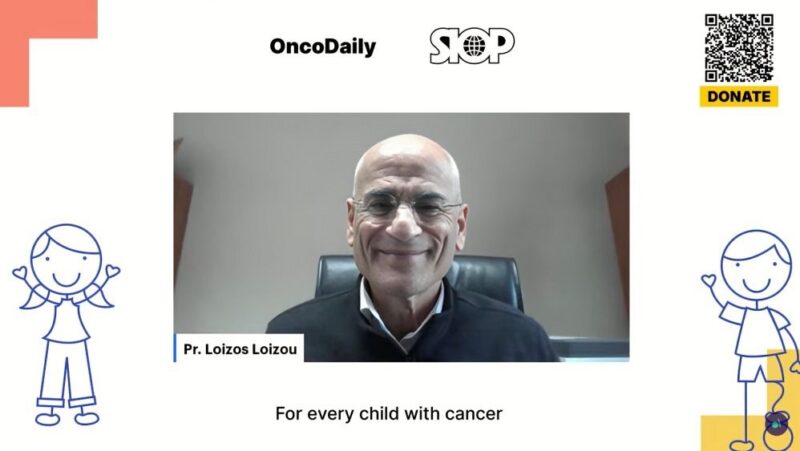
Rodica Mindruta-Stratan, Head of the National Cancer Control Program and Chair of the Ministry of Health Committee in Oncology/Hematology, Republic of Moldova, alongside Ruslan Baltaga, Director of the Oncology Institute of Moldova, shared key advancements in pediatric cancer care. They highlighted Moldova’s efforts to expand access to essential medicines, enhance specialized training, and strengthen international collaborations.
They emphasized the country’s participation in global initiatives, including a platform for pediatric cancer medicines, and the crucial role of partnerships with various organizations supporting oncology care. They also discussed progress in establishing a multidisciplinary oncology team and improving diagnostics to align with international standards.
Both speakers called for collective action and urged support for pediatric cancer patients, encouraging donations to further these vital initiatives.
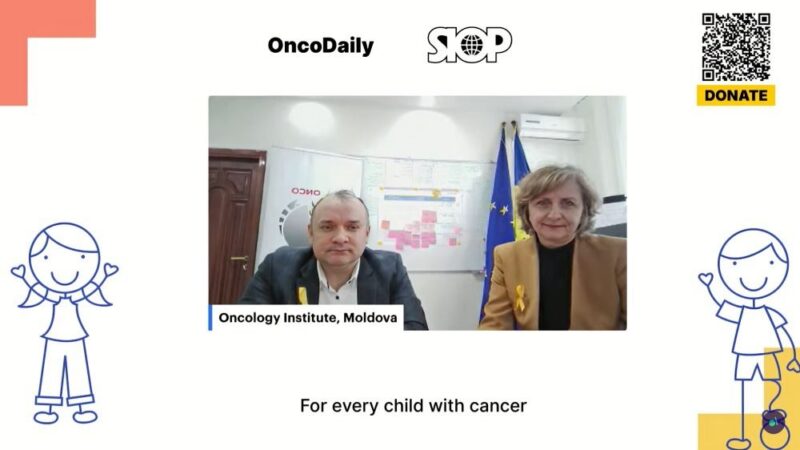
Lilit Sargsyan, Deputy Medical Director of Yeolyan Hematology and Oncology Center, Ministry of Health of Armenia, discussed how Armenia was transitioning toward a centralized model for healthcare resources, inspired by the example of Princess Máxima. She highlighted that implementing this approach at Yeolyan Hematology and Oncology Cancer Center was paving the way for more coordinated, efficient, and impactful cancer care across the nation.
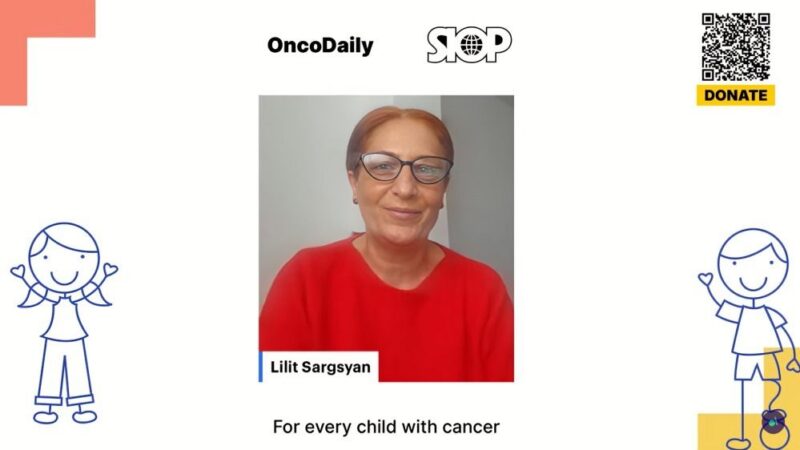
Maura Massimino, Chief of the Pediatric Oncology Unit at Fondazione IRCCS National Cancer Institute of Milan, joined the Second Global OncoThon by OncoDaily, reflected on her journey in pediatric oncology, and emphasized the importance of continuous learning, personalized treatments, and holistic patient care.
She shared her experiences, from medical school to her decades-long dedication to improving outcomes for children with cancer, particularly those with brain tumors. Massimino highlighted the need to tailor treatments based on individual factors while balancing medical advancements with quality of life considerations.
She urged support for pediatric cancer patients and encouraged donations to further research and patient care initiatives.
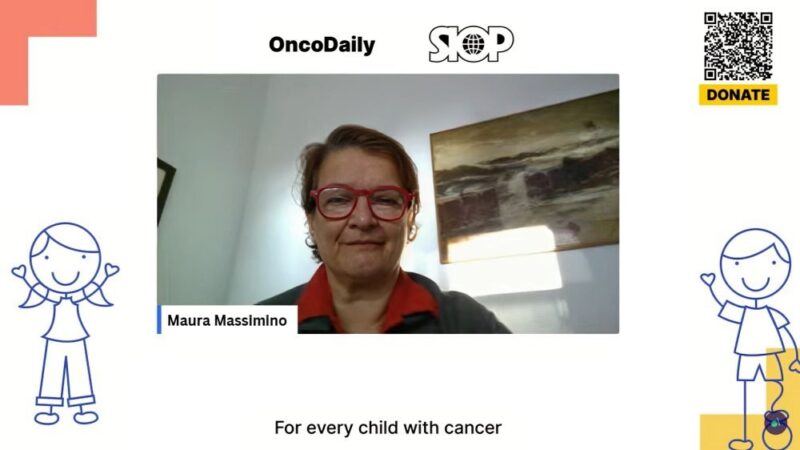
Uta Dirksen, President-Elect of SIOP Europe, the European Society for Paediatric Oncology (SIOPE), shared her journey from medical school to launching a childhood cancer treatment program in Eritrea. She reflected on the challenges and rewards of being a pediatric oncologist, emphasizing the dedication required to improve outcomes for children with cancer.
Despite working in a well-resourced part of the world, she stressed that childhood cancer remained a global issue, with children still dying from the disease. She called for collective action to bridge gaps in care, expand research, and ensure every child, regardless of where they lived, had access to life-saving treatment.
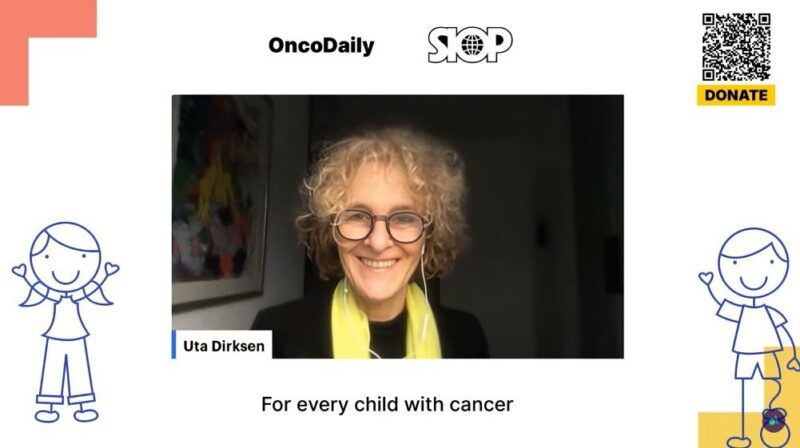
Isabelle Villadary, Head of the Childhood Cancer Program at Foundation S, talked about addressing global inequalities in childhood cancer care, highlighting the impact of the My Child Matters program in supporting children and strengthening healthcare systems in low- and middle-income countries.
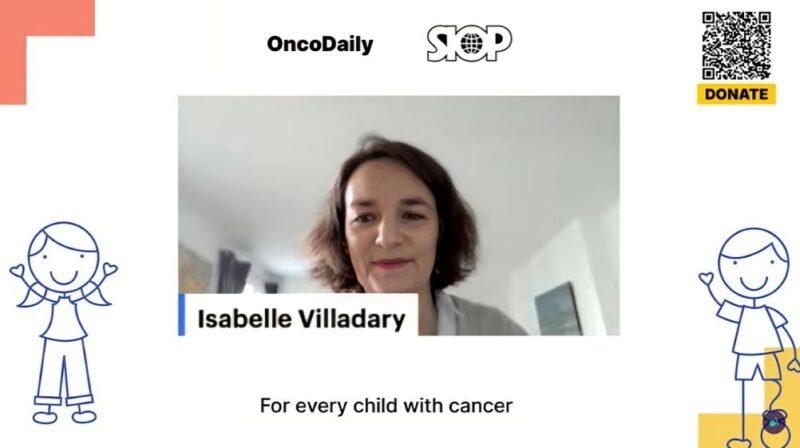
Penilla Gunther, Member of the EU Cancer Mission Board and Founder of FOKUS Patient, talked about her efforts to improve care for children with cancer, highlighting the challenges faced in the field, particularly the lack of clinical trials for pediatric cancers. She emphasized the importance of advancing new treatments and expanding initiatives such as genomic medicine, which was being implemented in Sweden to better understand and treat cancer.
Gunther also stressed the need for long-term support for childhood cancer survivors, noting that side effects could arise years after treatment, impacting the quality of life and often catching patients by surprise. She called for a more comprehensive approach to the patient journey that included ongoing care and attention throughout their lifetime.
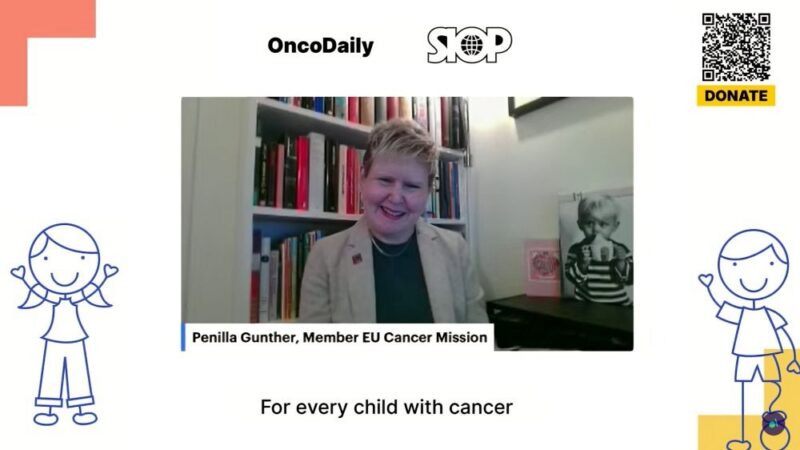
M. Tezer Kutluk, Chairman of the Department of Pediatrics in the Division of Pediatric Oncology at Hacettepe University Faculty of Medicine, emphasized the need for action beyond awareness.
He thanked the organizers and stressed that while amplifying voices and raising awareness were important, they were not enough—we had to take concrete steps to improve childhood cancer care. He also highlighted the critical challenges of providing pediatric cancer treatment in conflict and war zones, calling for governments to prioritize childhood cancer at the highest levels.
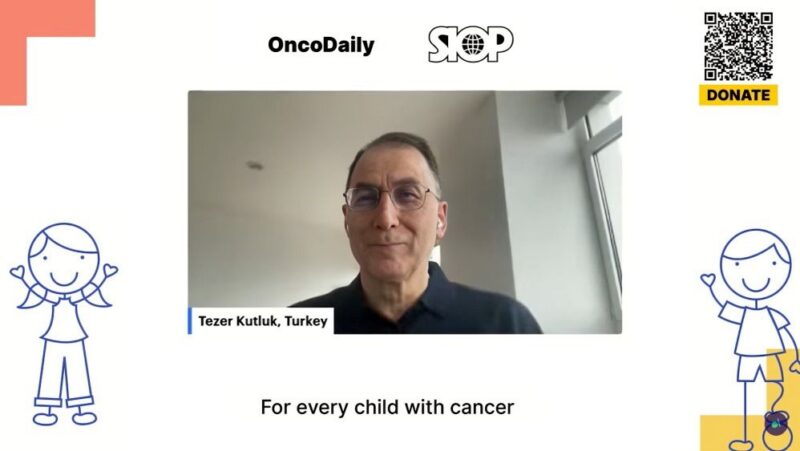
Alberto Costa, CEO of the European School of Oncology, highlighted the importance of increasing awareness and addressing challenges in pediatric cancer care, particularly for smaller EU member states with limited resources. He emphasized the progress made with cross-border healthcare assistance, which helped families access treatment across the EU.
Costa also talked about the European School of Oncology’s efforts to train the next generation of doctors and nurses through its Master Class in Pediatric Oncology, ensuring a steady flow of dedicated professionals in the field.
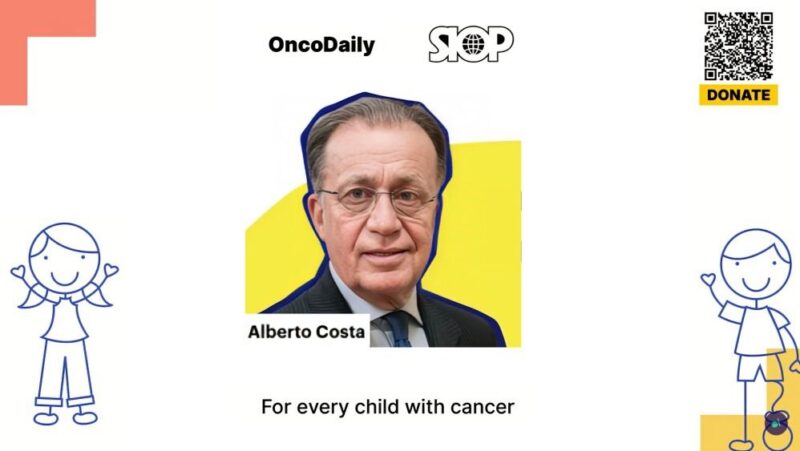
Richard Sullivan, Director of the Institute of Cancer Policy and Co-Director of the Centre for Conflict and Health Research at King’s College London, talked about the challenges of providing childhood cancer care in humanitarian crises, highlighting the urgent need for policy integration and innovative care models.
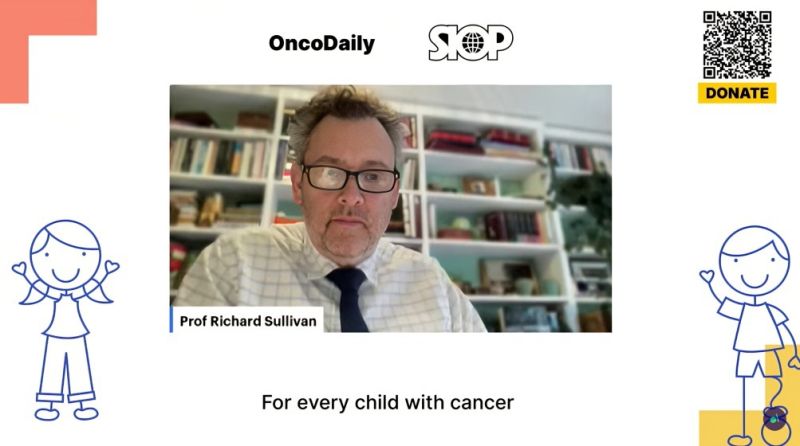
Laila Hessissen, President of GFAOP – Groupe Franco Africain d’Oncologie Pédiatrique (GFAOP), reflected on her 25-year career in pediatric oncology.
She acknowledged the personal, professional, and psychological challenges of the field, emphasizing that becoming a pediatric oncologist was not easy. Looking toward the future, she stressed the importance of unity, collaboration, and support from international institutions. She concluded by reaffirming that only by working together could we drive meaningful change in pediatric oncology.
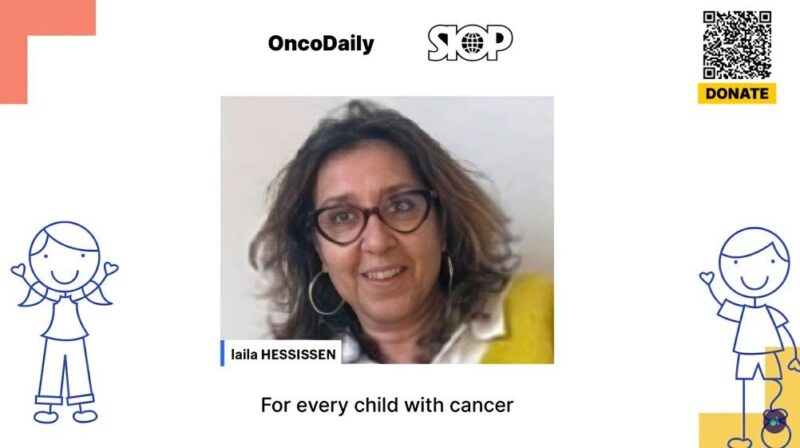
Lorna Renner, Past President of the International Society of Paediatric Oncology – SIOP Africa Continental Branch, joined the Second Global OncoThon by OncoDaily, discussing the disparities in pediatric cancer care between high- and middle-income countries. She emphasized the social, economic, and geographic barriers that contributed to unequal outcomes and access to treatment.
Renner highlighted Ghana’s progress through the World Health Organization’s Global Initiative, which aimed to save one million children’s lives. She shared successes such as including child cancer treatments in the National Health Insurance, training healthcare workers, and expanding shared care centers.
Through strategic partnerships and a multi-faceted approach, Ghana increased the number of children diagnosed annually from 140 in 2016 to nearly 500, showing significant progress in access and outcomes.
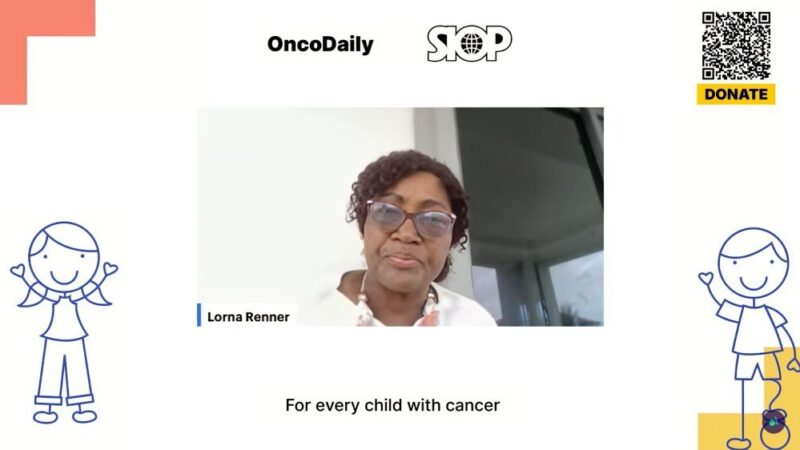
Mahmoud Hammad, Director of the Nasser Institute Oncology and Nuclear Medicine Center, talked about the urgent need to expand pediatric cancer care and stem cell transplantation in Egypt and the broader African region, highlighting the disparities in survival rates and the critical role of collaboration.
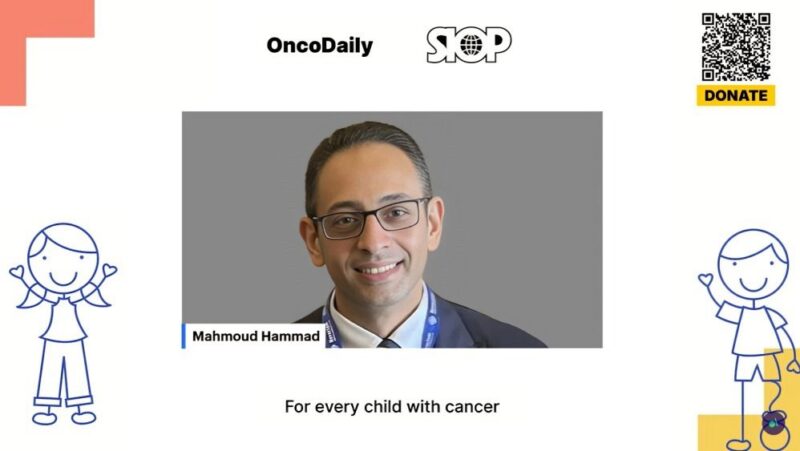
Samar Muwakkit, Professor of Clinical Pediatrics at the American University of Beirut Medical Center, spoke about her wish for the year, which was to secure more medication to treat children with cancer in low-income countries. She believed dedication could make a big difference and hoped to help improve the situation in her country.
She also talked about the Children’s Cancer Center of Lebanon (CCCL), established in 2002. Initially, many families couldn’t afford treatment, so the center became a place of care, play, and hope. With a survival rate of 90%, improvements were made, but the economic crisis led to many children losing access to treatment. Samar emphasized the need to rise above these challenges and restore survival rates.
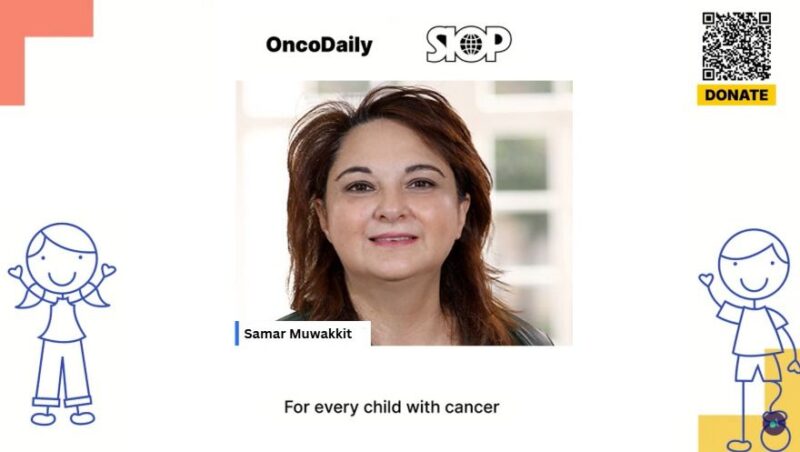
Nihal Kaviratne, Director of DBS Group & Bank, DBS Foundation Limited, StarHub, OLAM, GSK Pharma India, and Chairman of Caraway Pte Ltd, highlighted the challenges of accessing cancer care and treatment in India, where the survival rate for children with cancer was just 40%, significantly lower than in developed countries.
He shared his personal experience of witnessing children in Mumbai, who were receiving cancer treatment, living on the streets. This deeply affected him, and he made a promise that no child from rural areas should ever face such hardships while seeking treatment in the city. Now, his efforts focused on making cancer care and treatment more accessible across India.
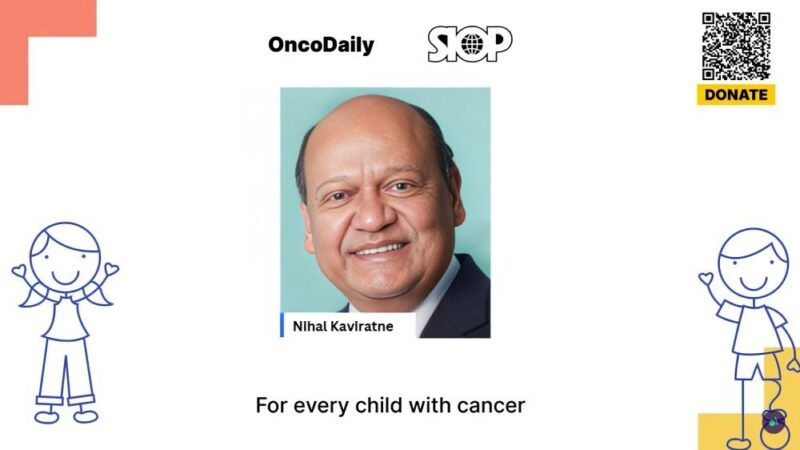
Jennifer Geel, President-Elect of the International Society of Paediatric Oncology – SIOP Africa Branch, joined to talk about the ongoing efforts to improve pediatric oncology care in Africa, highlighting the work of multidisciplinary teams and the impact on survival rates.
She discussed how pediatric oncology pharmacists were collaborating across the continent to enhance training, the creation of cancer treatment baselines through research, and initiatives to educate healthcare providers who were not oncology specialists but were key in treating pediatric cancer patients.
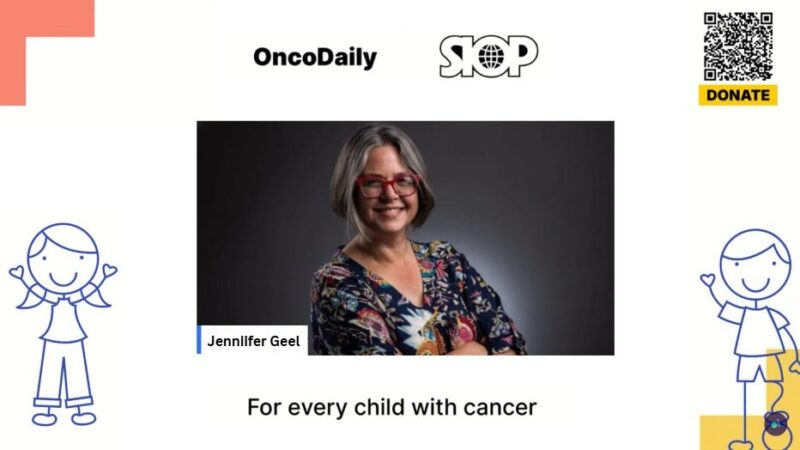
Zainab Shinkafi-Bagudu, Chairperson of the First Ladies Against Cancer and President of Medicaid Foundation, shared her journey into cancer advocacy, which began as a pediatrician in Nigeria. She highlighted the significant lack of awareness and knowledge surrounding women’s health issues and childhood cancer, especially in low- and middle-income countries like Nigeria. Shinkafi-Bagudu emphasized the importance of raising awareness, building capacity for healthcare workers, and providing educational resources to parents and community health workers. 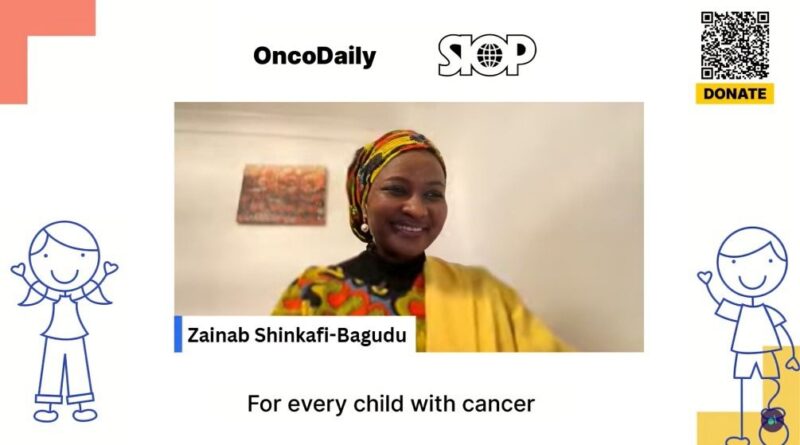
Rob Pieters, President-Elect of the International Society of Paediatric Oncology (SIOP), discussed the important question of where you would have gone for treatment if your child had cancer. He pointed out that if you would have considered going abroad for care, it would have meant that we weren’t doing enough for children with cancer in our own country. This sparked a drive for improvement of the Princess Máxima Center for Pediatric Oncology. The center was built with the goal of providing the best care and treatment to every child, ensuring they didn’t need to seek help outside the country. Thanks to this effort, the survival rate for childhood cancer significantly improved, now reaching an impressive 84%.
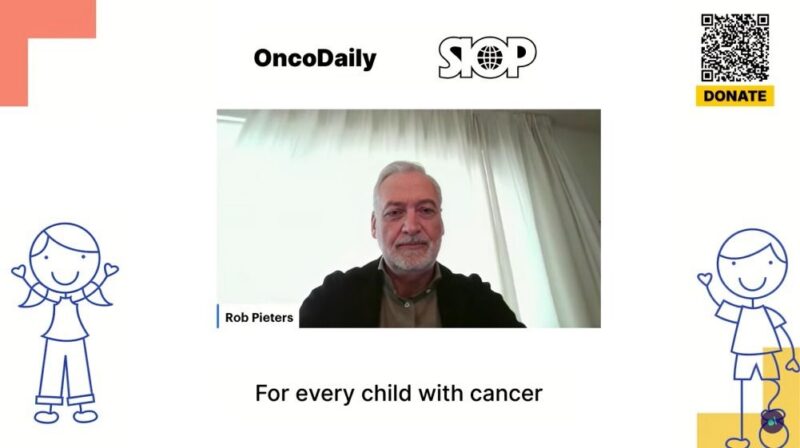
Ruzanna Papyan, Pediatric Oncologist and Clinical Research Physician at the Pediatric Cancer and Blood Disorders Center of Armenia, emphasized the power of unity in advancing cancer care and research.
She highlighted that OncoThon brought people together in a shared mission to improve outcomes through collaboration. Ruzanna spoke about the success of centralized cancer care in LMICs, noting that Armenia’s progress had given children more hope than ever before.
She stressed that by working together, we could transform outcomes for children worldwide. In closing, she emphasized that OncoThon was not just an event but a call to action, encouraging donations and challenging others to join the effort.
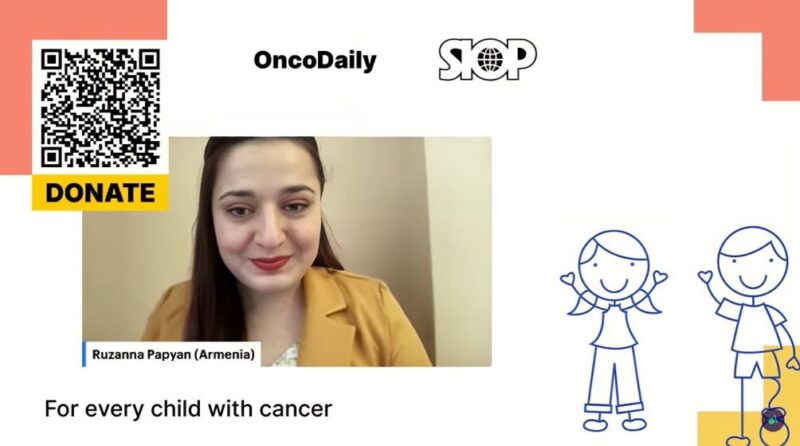
Paco Arango, President and Founder of the Aladina Foundation, and Ishtar Espejo, CEO of the Aladina Foundation, shared powerful messages on the importance of unity in improving childhood cancer care.
They both highlighted the significance of OncoThon as a vital initiative that required more participation. They spoke about the work being done at the Aladina Foundation, which was dedicated to helping professionals enhance cancer care. One of their projects involved creating a day care home for children undergoing cancer treatment. They firmly believed that every child deserved full access to treatment and care, regardless of their circumstances. They also mentioned their efforts to assist refugees from Gaza and Ukraine.
Ishtar Espejo concluded that OncoThon had proven that we were all part of the same ecosystem and that each of us was necessary. Only together could we make a real change.
Paco Arango wrapped up by emphasizing that the most important thing was having that “beam of light” and hope that guided everyone toward the same cause, making them stronger in the fight against childhood cancer.
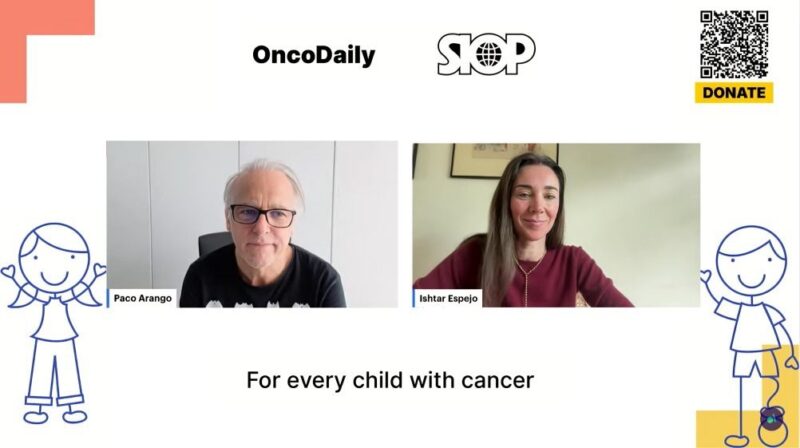
Andres Morales La Madrid, Head of the Oncology Department at Saint Juan de Déu Hospital, discussed the urgent need for specialized funding and research in pediatric oncology, emphasizing that pediatric and adult cancers were fundamentally different. He highlighted the necessity of targeted research and resources to address the unique challenges faced by children with cancer.
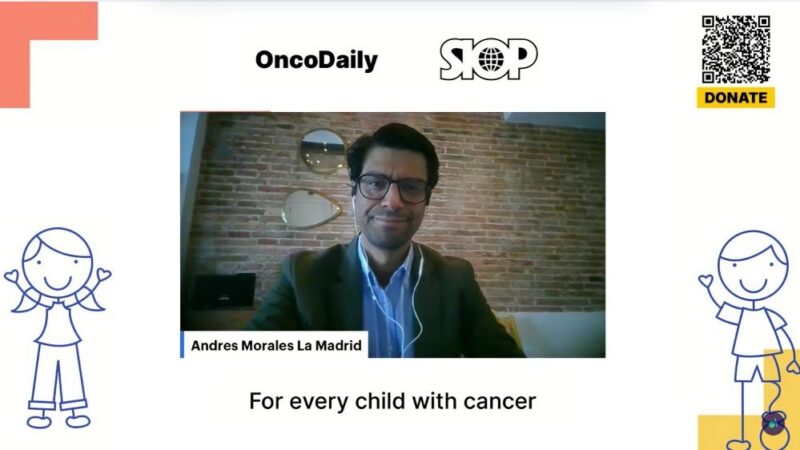
Rawad Rihani, Chairperson of the Department of Pediatrics in the Pediatric Blood and Marrow Transplantation and Cellular Therapy Program at King Hussein Cancer Foundation and Center, spoke about the challenges of treating children with cancer in low-income countries, specifically in Jordan. She emphasized that it was a large but rewarding task, as they helped cure children every day and brought hope to their families.
She highlighted the issue that many children in these countries did not have access to even basic treatments. To address this, she stressed the need to raise awareness about pediatric cancer and educate people on the importance of early detection and treatment. She called for greater collaboration with governments to include cancer treatments in national healthcare programs, ensuring children received the help they needed.
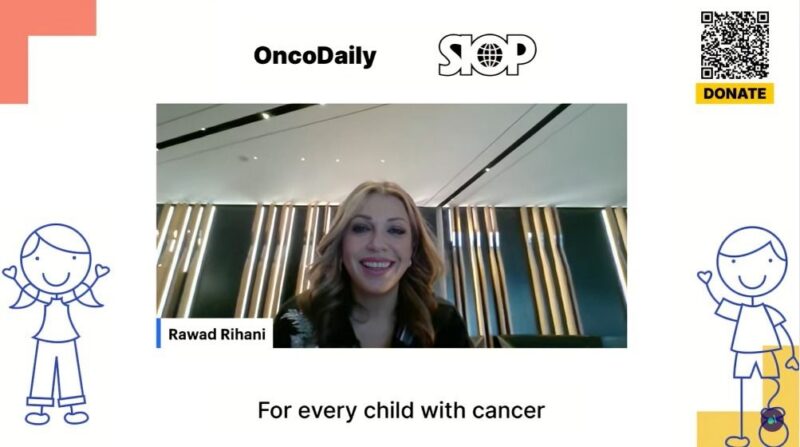
Alexandra Müller, Member of the Board of Directors of The Institute of Cancer and Crisis (ICC) and Pediatric Oncologist at the University Hospital Freiburg, discussed the SAFER Ukraine Initiative, which focused on providing medical care to cancer patients, especially children, and raising awareness about the risks of pediatric cancer.
She highlighted the collaborative efforts of over 80 countries that had supported Ukraine in ensuring medical care for children with cancer during the war. Müller emphasized the challenges of treating pediatric patients in such difficult conditions but also the importance of international partnerships in offering vital care.
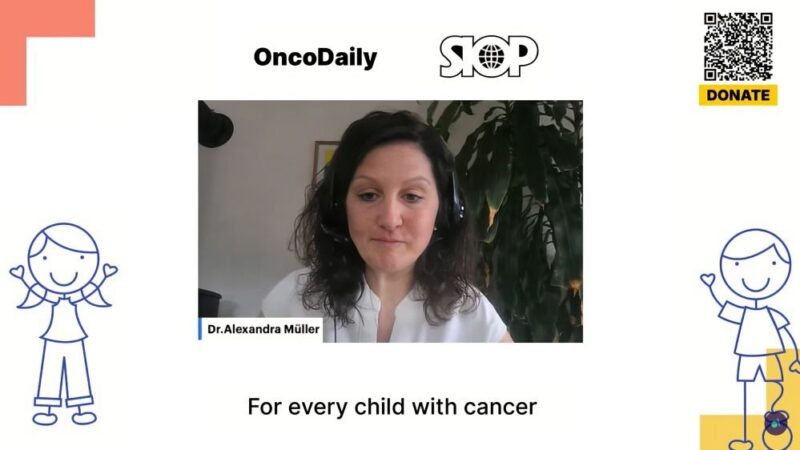
Rejin Kebudi, Secretary General of the International Society of Paediatric Oncology (SIOP) and Professor of Pediatrics and Pediatric Hematology-Oncology at Istanbul University, Cerrahpasa Medical Faculty, shared an inspiring message on the need for global collaboration in childhood cancer care.
She expressed gratitude to OncoDaily for its collaboration with SIOP and extended her sincere regards to families, children affected by cancer, and survivors. She emphasized the urgent need to increase survival rates and improve the quality of life for children with cancer. She highlighted the importance of bridging the gap between high-income countries and LMICs by working together.
She also stressed the critical role of government support, research, and funding in advancing pediatric cancer care and ensuring equitable access to treatment worldwide.
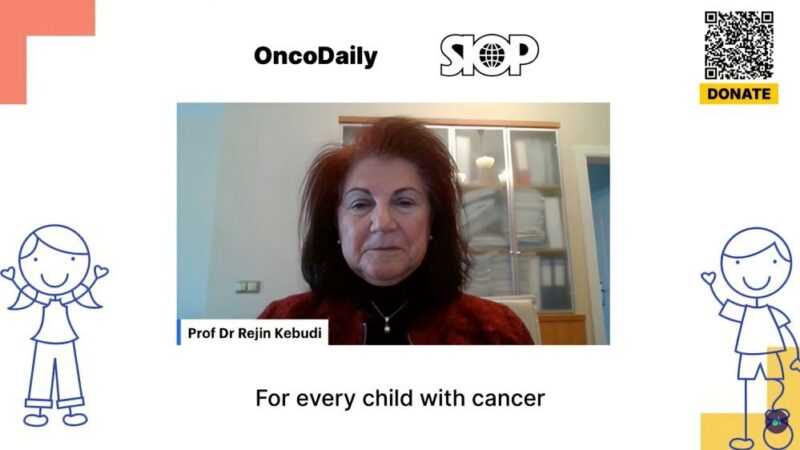
Francois Doz, Education and Training Committee Chair at the International Society of Paediatric Oncology (SIOP), discussed the critical link between a country’s income and childhood cancer survival rates. He highlighted the importance of improving cure rates in low- and middle-income countries, emphasizing that efficient treatments were key.
Doz also shared new advancements in pediatric cancer biology, including developments in less toxic, more effective treatments. He underscored the importance of early diagnosis and ongoing educational efforts to enhance survival outcomes worldwide.
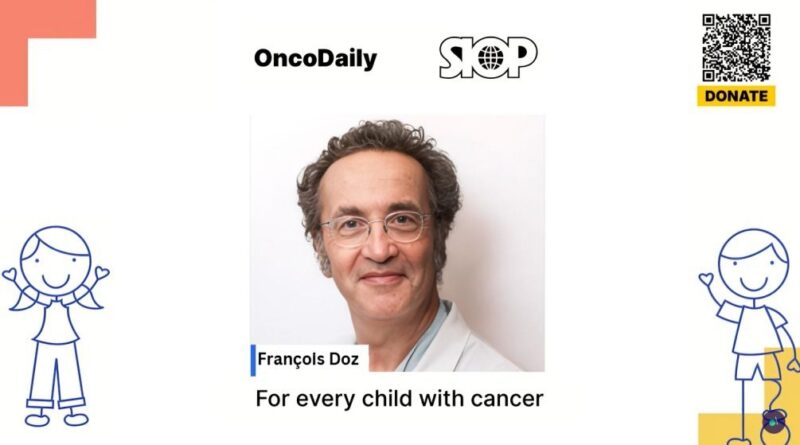
Milen Minkov, Head of the International LCH Study Center at St. Anna Children’s Cancer Research Institute (CCRI) in Vienna, shared his journey in pediatric cancer, highlighting his work in managing four clinical trials, which were crucial steps in advancing treatment for childhood cancer.
He emphasized the importance of collaboration, with 25 countries across five continents participating to improve care, save lives, and establish better pediatric cancer treatment globally. Minkov stressed that success in treating rare diseases, like pediatric cancer, was possible when countries and professionals worked together toward a common goal.
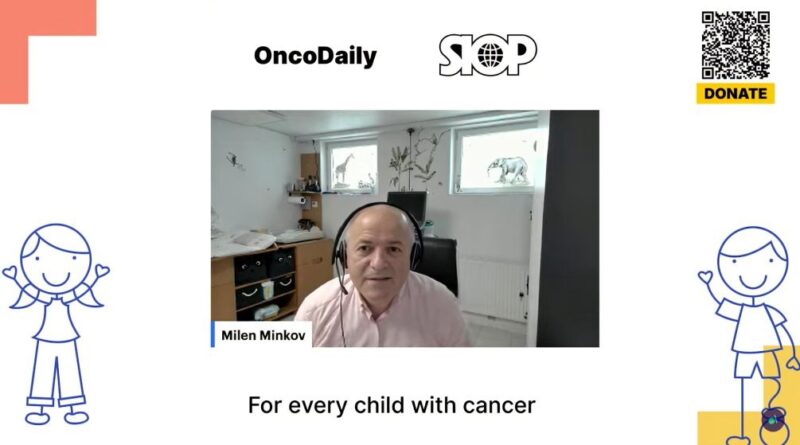
Martin Guscott, Co-Chair of the Neuro-Oncology Research and Care Network (NORCaN), discussed efforts to advance neuro-oncology through research, education, and technology.
He introduced NORCaN, an online platform that was launched in December 2023 to improve care and outcomes through collaboration. The network brought together specialists—including neuro-oncologists, neurosurgeons, radiologists, and researchers—to review patient cases and educational topics in a multidisciplinary setting. Guscott emphasized that NORCaN was free for healthcare professionals and academic researchers worldwide, encouraging global participation to drive progress in the field.
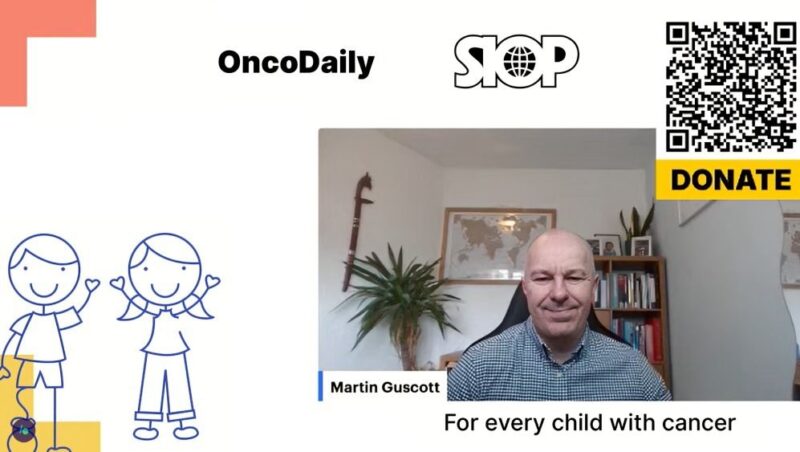
Claudia Sampor, a pediatric oncologist at Hospital de Pediatría Prof. Dr. Juan P. Garrahan, shared insights into the challenges and rewards of a career in pediatric oncology.
She spoke about her journey in the field, highlighting the difficulties that pediatric oncologists faced. She emphasized the crucial role of raising awareness and securing funding for childhood cancer care and research.
Dr. Sampor stressed that continued efforts and collaboration were essential to improving outcomes for children with cancer worldwide.
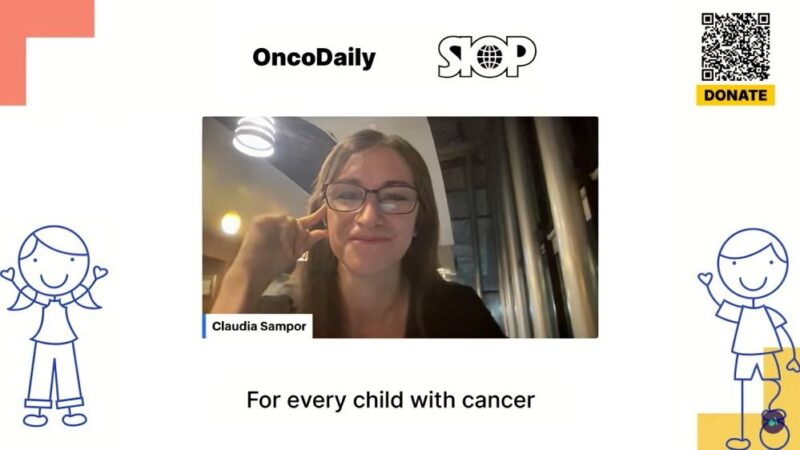
Korede Akindele, Chairman of the Young SIOP Network and COO of The Dorcas Cancer Foundation, spoke about pediatric oncology in Nigeria and his involvement in pediatric programs across Africa. He emphasized the importance of raising awareness and advocacy to help children, working closely with professionals, and receiving support to improve care.
Akindele highlighted that, through the efforts of him and his team, they had been pushing various initiatives to improve children’s health. He stressed that with collective effort, much more could be done to address pediatric cancer and overall children’s healthcare in Africa.
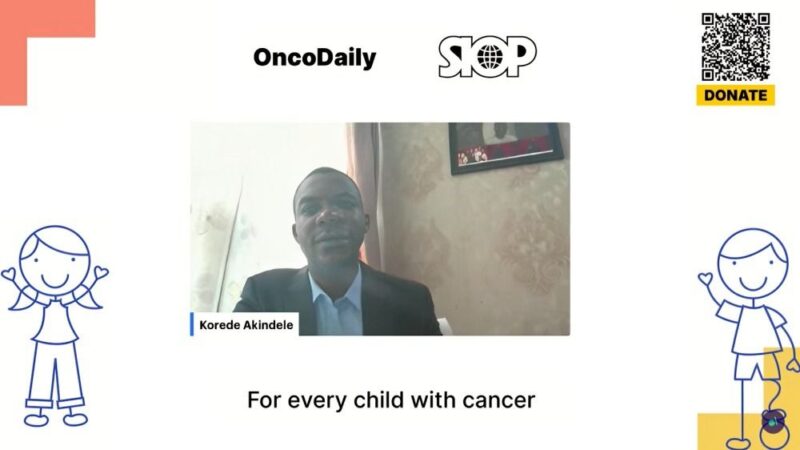
Arsene Mekinian, Professor of Immunology, Rheumatology, and Internal Medicine at Sorbonne Université and Founder of Santé Arménie, joined to discuss advancements in cancer immunology research. He highlighted the establishment of a new immunology lab in Armenia, developed in collaboration with European centers and pharmaceutical partners, focusing on rare pediatric sarcomas.
This initiative aimed to enhance translational research and test innovative immunotherapy treatments, demonstrating the power of global collaboration in advancing cancer care.
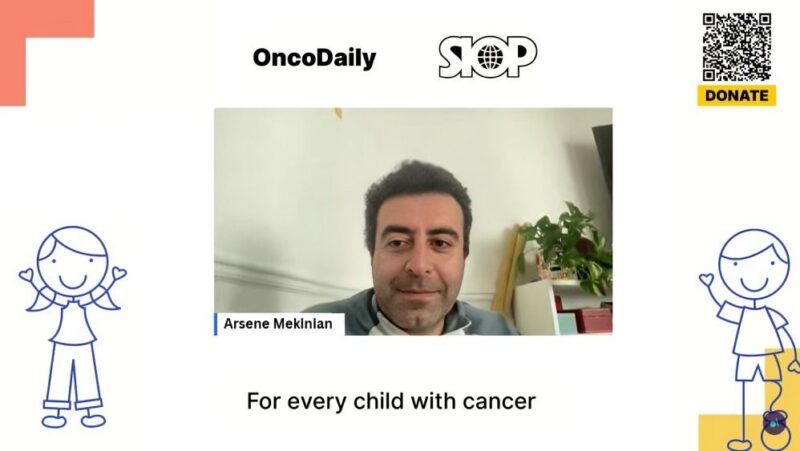
Britt-Marie Frost, Head of Research at the Swedish Childhood Cancer Fund, discussed the progress and challenges of childhood cancer treatment in Sweden.
She highlighted that, despite high survival rates, the long-term side effects of treatment remained a significant concern, emphasizing the need for further research to improve the quality of life for survivors.
Dr. Frost also spoke about Sweden’s efforts to enhance collaboration across Europe, aiming to make cancer research more effective and impactful.
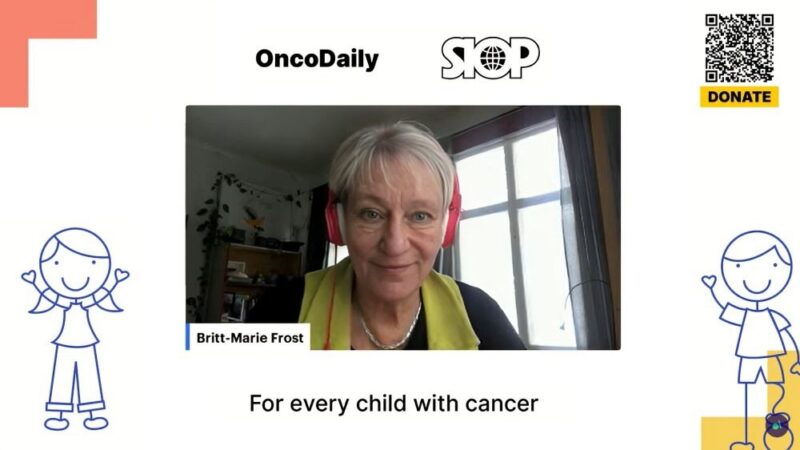
Eric Bouffet, Former President of the International Society of Paediatric Oncology (SIOP) and current Board Member of the Union for International Cancer Control (UICC), spoke about the alarming survival rates for children with cancer, noting that half of the children never even made it to diagnosis, which he found unacceptable. Through extensive research and clinical trials, he worked with 32 countries worldwide to tackle this issue and improve outcomes for pediatric cancer patients. Bouffet stressed that regardless of whether a child lived in a high- or low-income country, pediatric cancer should be prioritized.
He stated: “My message today is to make this world a better place.”
